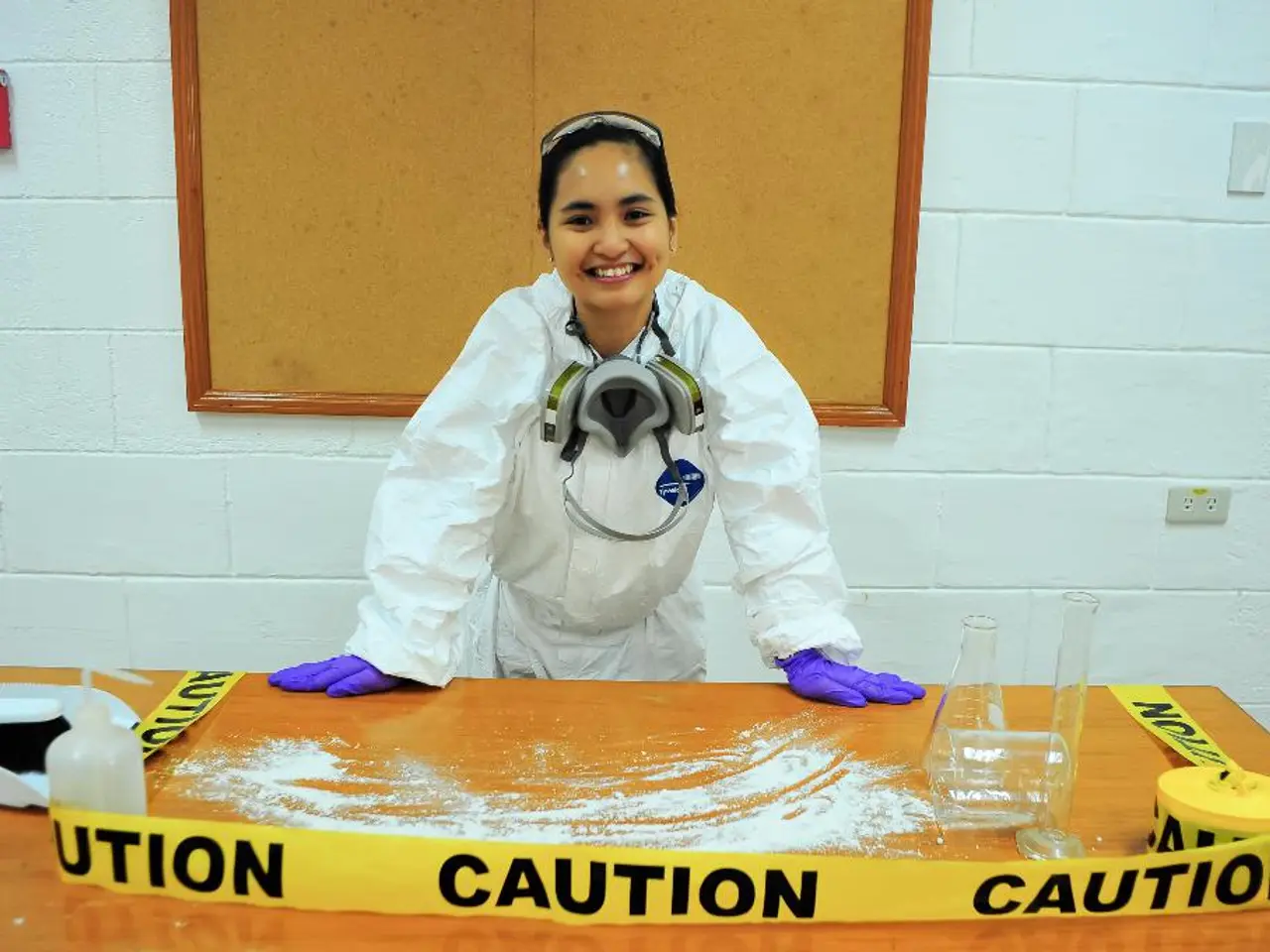Vaccination against COVID-19: Available Options, Safety Measures, and Obtaining the Shot
In the ongoing battle against COVID-19, vaccine recommendations in the United States have evolved to cater to individual health conditions and risk factors. As of June 2025, the Advisory Committee on Immunization Practices (ACIP) has issued new guidelines for different age groups.
For children, vaccination now involves shared clinical decision-making with healthcare providers. This approach emphasises a more personalised approach based on each child's health conditions and risk factors. There is no universal recommendation for all children[1].
Adults, particularly those with underlying health conditions or high exposure risks, are generally encouraged to receive COVID-19 vaccination[1]. Adults over 65 are recommended to receive two COVID-19 vaccine doses annually. They are among the highest risk groups for severe outcomes from COVID-19, along with infants under 6 months[1][3].
Maternal vaccination is strongly recommended as it provides the best protection against COVID-19 for pregnant women and their infants who are too young to be vaccinated themselves[3]. Pregnant women and infants under 6 months are not included in the universal vaccination strategy, but the focus is on protecting them through maternal vaccination.
The Pfizer-BioNTech, Moderna, and Comirnaty (BioNTech) COVID-19 Vaccines have been FDA approved for people. The Pfizer-BioNTech vaccine has also been approved for children. Nuvaxovid (Novavax) has been FDA approved for people ages 12 through 64 years with at least one health condition that increases their risk of a severe outcome from COVID-19[2].
Vaccines are administered by licensed healthcare professionals and can be received at a local health department, hospital, clinic, or pharmacy. The American Academy of Pediatrics (AAP) recommends vaccination for every child 6 months or older[4].
Anyone with a history of allergies to vaccines or other injectable medications should inform the healthcare worker before receiving the vaccine. The CDC encourages people to use the Vaccine Adverse Event Reporting System to report any side effects[5]. For those ages 6 months to 17 years, a shared decision model is suggested, taking the child's health factors into account[6].
Vaccines play a crucial role in reducing infection rates, hospitalizations, and deaths from COVID-19. They stimulate the immune system to make antibodies to defend against specific diseases, making vaccinated individuals less susceptible to severe illness and death than those who are unvaccinated[7]. As of May 2025, the CDC recommends that most people ages 18 years and older get an annual COVID-19 vaccine[8].
The COVID-19 pandemic has resulted in over 1.2 million deaths in the United States and 7.1 million worldwide. With these updated recommendations, the focus remains on protecting vulnerable populations and minimising the impact of the pandemic.
[1] Advisory Committee on Immunization Practices. (2025). Interim COVID-19 vaccination recommendations for the United States—June 2025. MMWR Recomm Rep, 74(RR16), 1-46. [2] U.S. Food and Drug Administration. (2025). FDA approves Novavax COVID-19 vaccine for emergency use. Retrieved from https://www.fda.gov/news-events/press-announcements/fda-approves-novavax-covid-19-vaccine-emergency-use [3] Centers for Disease Control and Prevention. (2025). Interim clinical considerations for mRNA COVID-19 vaccines currently authorized in the United States. Retrieved from https://www.cdc.gov/coronavirus/2019-ncov/vaccines/recommendations/clinical-considerations.html [4] American Academy of Pediatrics. (2025). COVID-19 vaccines for children and adolescents. Retrieved from https://www.aap.org/en-us/advocacy-and-policy/aap-health-initiatives/Pages/COVID-19-Vaccines-for-Children-and-Adolescents.aspx [5] Centers for Disease Control and Prevention. (2025). Vaccine Adverse Event Reporting System (VAERS). Retrieved from https://vaers.hhs.gov/ [6] Centers for Disease Control and Prevention. (2025). COVID-19 vaccination considerations for children and adolescents. Retrieved from https://www.cdc.gov/coronavirus/2019-ncov/vaccines/recommendations/pediatric-use/clinical-considerations.html [7] Centers for Disease Control and Prevention. (2022). Key things to know about COVID-19 vaccines. Retrieved from https://www.cdc.gov/coronavirus/2019-ncov/vaccines/keythingstoknow.html [8] Centers for Disease Control and Prevention. (2025). Interim COVID-19 vaccination recommendations for the United States—May 2025. MMWR Recomm Rep, 74(RR13), 1-43.
In the context of COVID-19, updates to vaccine recommendations by the Advisory Committee on Immunization Practices (ACIP) in 2025 prioritize personalized vaccination approaches for children, taking into account their health conditions and risk factors, rather than a universal recommendation for all.
Adhering to science and health-and-wellness guidelines, adults with underlying health conditions or high exposure risks are encouraged to receive annual COVID-19 vaccine doses, while pregnant women are recommended to get vaccinated for optimal protection for both themselves and their unvaccinated infants.




